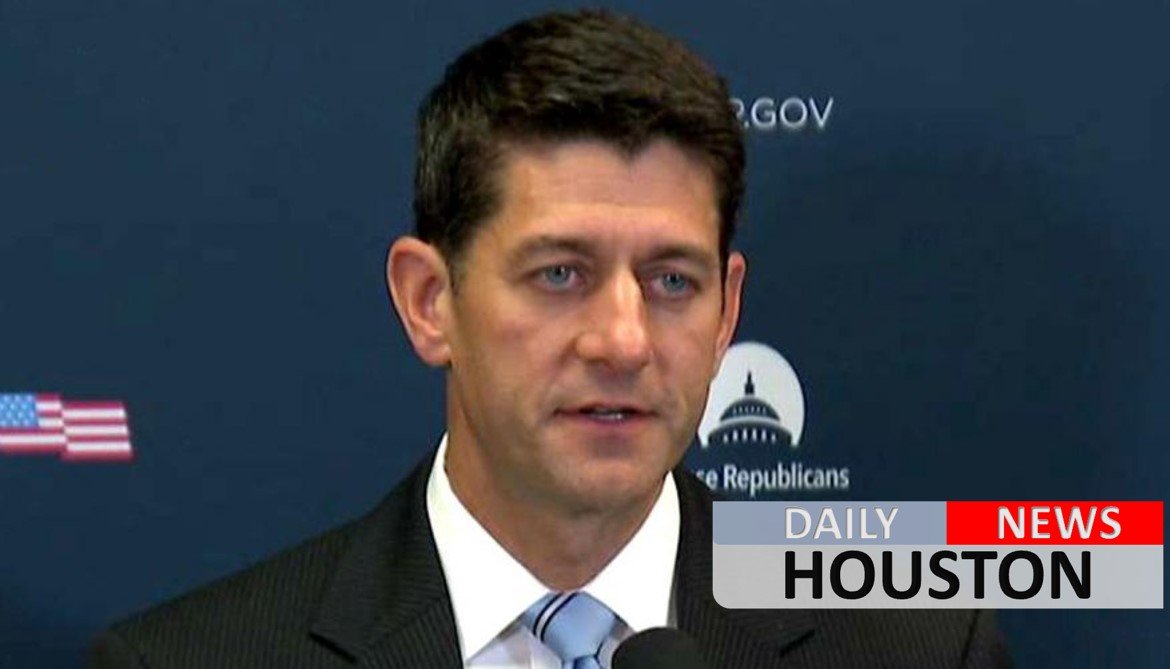House Speaker Paul Ryan accused congressional Democrats Wednesday of playing “politics” with a “disgraceful” bid to tie Harvey aid to a short-term increase in the debt ceiling, warning the move could put the storm aid at risk.
He spoke as the House was poised to approve $8 billion in Hurricane Harvey relief money, after which the bill would go to the Senate.
The Senate already had been expected to attach an increase in the debt ceiling. But Ryan bristled at a call by House Democratic leader Nancy Pelosi and Senate Democratic leader Chuck Schumer to attach only a three-month increase in the debt ceiling, and not the longer-term increase GOP leaders want.
“To play politics with the debt ceiling like Schumer and Pelosi apparently are doing, I don’t think is a good idea,” Ryan said.
He called the proposal “unworkable” and said it “could put in jeopardy the kind of hurricane response we need to have.”
The House is nevertheless expected to easily pass the Harvey aid bill on the initial vote. Bipartisan support would be no surprise considering how Harvey essentially put Houston and the rest of southeast Texas underwater before striking Louisiana, causing a projected $160 billion in damage.
But even as Democrats’ call for a short-term debt limit hike angered Ryan, the plan to have the GOP-controlled Senate vote to increase the debt ceiling has some conservatives agitated as well.
“It’s not going to be appreciated. That doesn’t mean it won’t pass,” Rep. Tom Cole, R-Okla., told Fox News. “People don’t like to be blackmailed.”
A senior House member, who asked to not be identified, called the tactic a “charade” and asked, “Why not attach the debt ceiling in the first place?”
The Trump administration originally had asked Congress to raise the debt limit by Sept. 29 to keep the federal government from defaulting on its bills.
Then Treasure Secretary Steve Mnuchin made a plea on “Fox News Sunday” this past weekend for Congress to increase the borrowing authority along with a Harvey aid package, amid fears the government won’t have enough cash to help Harvey victims in immediate need of assistance.
“The red flags that the White House waved are real,” House Ways and Means Committee Chairman Rep. Kevin Brady, R-Texas, said Tuesday.
The Senate’s expected Harvey-debt ceiling measure, if passed, would then go back to the House where it faces a less certain future.
While some GOP leaders want a longer-term increase, any votes to increase federal borrowing are always difficult for members of Congress, particularly fiscal conservatives principally opposed to increasing debt and spending.
The House’s two big, fiscally conservative groups — the House Freedom Caucus and the Republican Study Committee — have already expressed reservations about a combo vote.
However, members also don’t want to be vilified for stiffing Harvey flood victims — particularly with Hurricane Irma now taking aim at Florida and after Congress took months after 2012’s Superstorm Sandy to approve emergency funding.
If the first Harvey measure passes, Congress is also expected in the coming weeks or months to agree to billions more in additional aid, with much of the first batch replenishing Federal Emergency Management Agency coffers.
The House is handling the Harvey package Wednesday under a parliamentary tactic known as “suspension,” which allows members to sidestep debate and other procedures if the measure can pass with a two-thirds majority.









